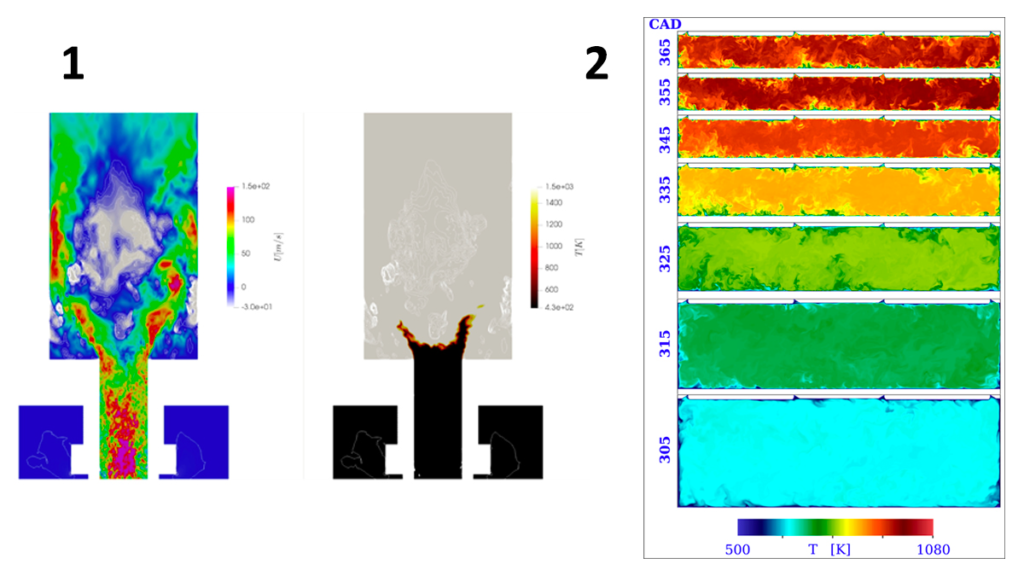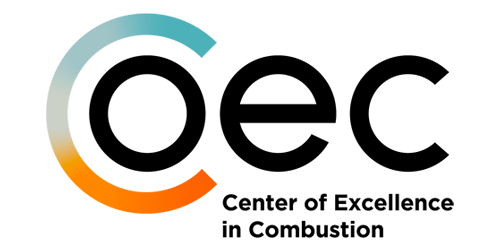The Centre of Excellence in Combustion (CoEC) is a collaborative effort to exploit Exascale computing technologies to address fundamental challenges encountered in combustion systems. The CoEC vision is aligned with the goals of decarbonization of the European power and transportation sectors and Europe´s vision to achieve net-zero greenhouse gas emissions (GHG) by 2050. The CoEC initiative is a contribution of the Euro-pean HPC combustion community to a long-term GHG emissions reduction in accordance with the Paris Agreement. The consortium is composed of leading European institutions in computational combustion and HPC and promotes a core of scientific and technological activities aiming to extend the state-of-the-art in combustion simulation capabilities through advanced methodologies enabled by Exascale computing. These advances will help increase the TRL of representative codes from the EU combustion community and increase the EU competitiveness and leadership in power and propulsion technologies.
The outcomes of the project will be the basis of a service portfolio to support the academic and industrial activities in the power and transportation sectors. The Centre will also stimulate the consolidation of the European combustion community, by combining the knowledge of representative actors from the scientific and industrial sectors with the capacity of HPC community including research institutions and supercomputer centres. CoEC will promote the usage of combustion simulations through dissemination, training and user support services.
CONCEPT AND APPROACH
The technical activities integrated into CoEC are defined from the fundamental challenges of relevant application areas where combustion is involved. These areas include transportation (aviation and automotive), energy and power generation, aerospace, fire and safety. All these sectors share common challenges that are associated to scientific and techno-logical problems related with combustion simulation; e.g: instabilities, emissions, noise, plasma, nanoparticles, multiphase flow, autoignition or the use of alternative fuels in practical applications. These research topics have large tradition in combustion science and fundamental progress has been made in the last decade to obtain further understand-ing on these phenomena using numerical simulations. However, the degree of integration in industry still remains low either be-cause the incomplete fidelity/accuracy of the models, or due to insufficient computing power that hinders the maturity of the technology to be deployed with the level of indus-trial standards. Exascale computing technologies will enable a new paradigm in physical and numerical modelling, which requires a profound revision of models. For this pur-pose, two important building blocks regarding Simulation Technologies, and Exascale Methodologies will also be incorporated in the project.





